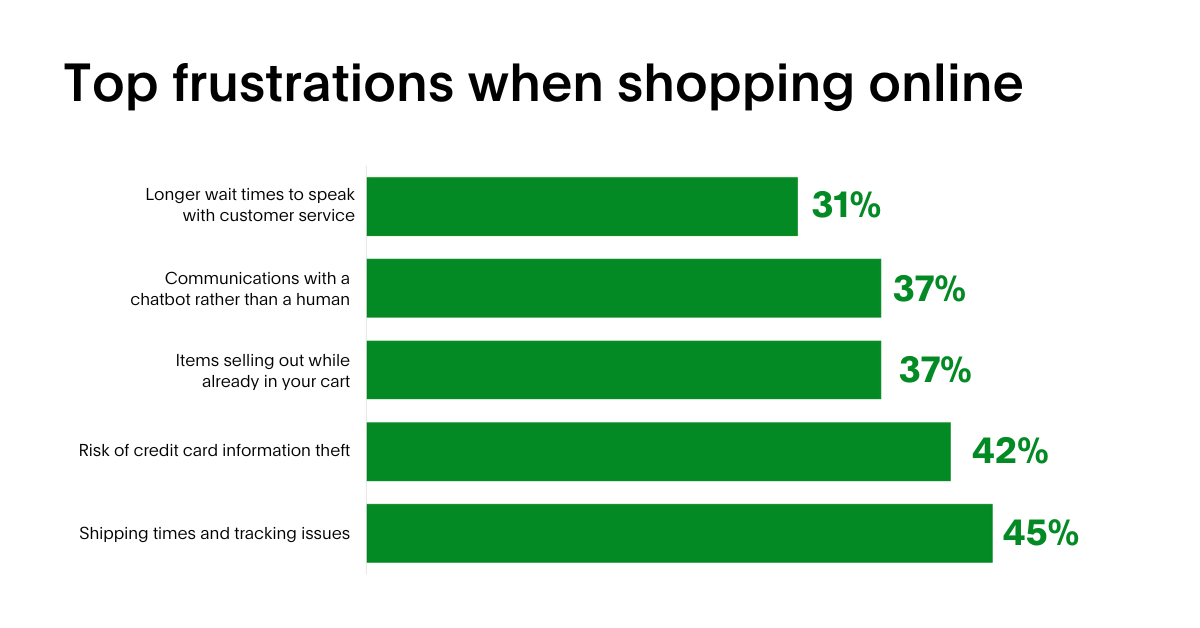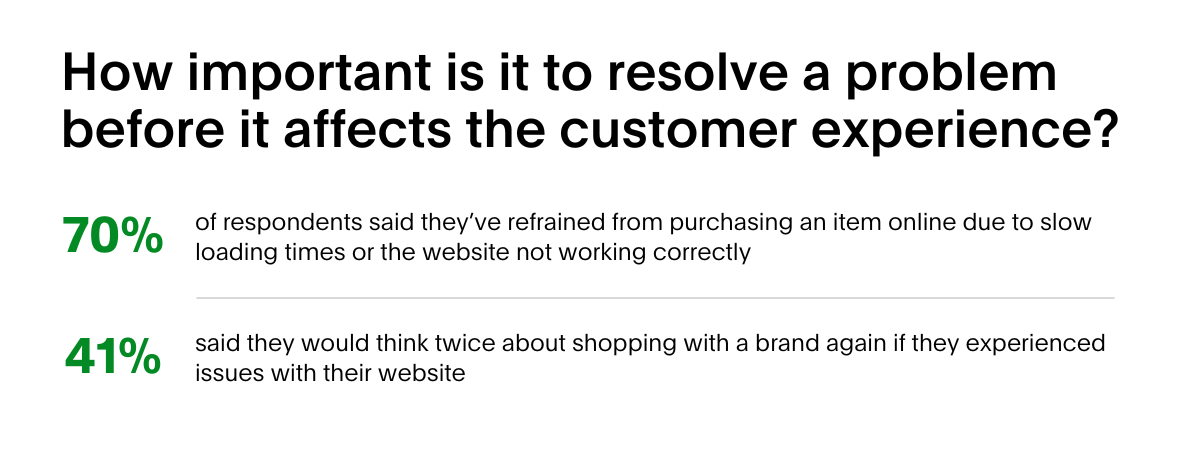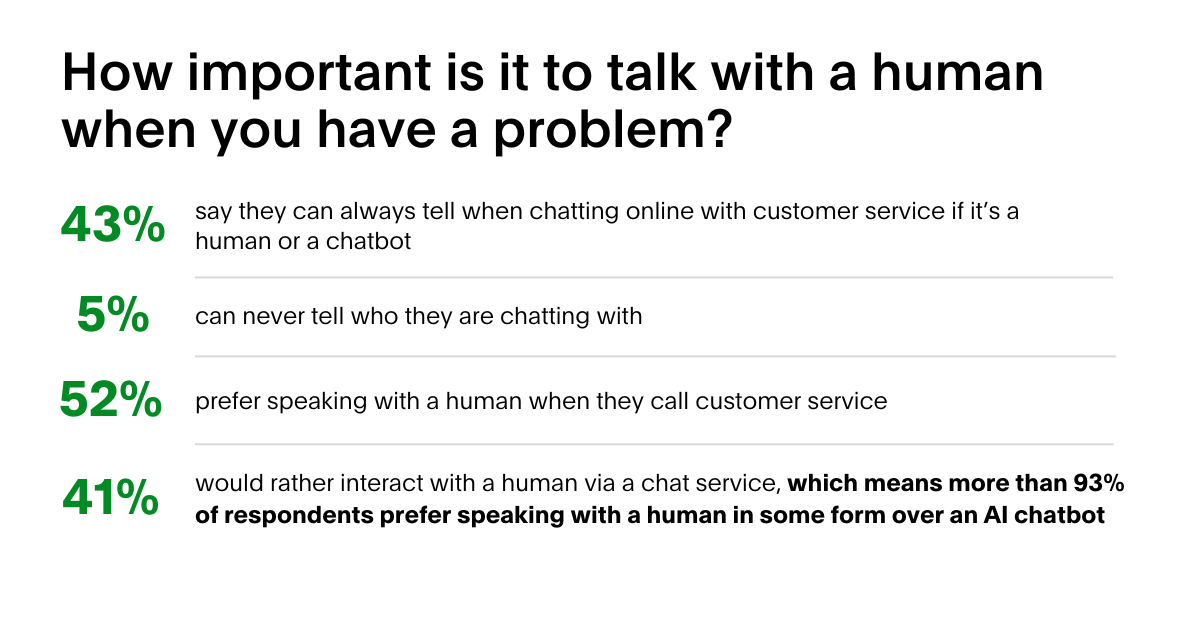- PagerDuty /
- Blog /
- Customer Service /
- New Study Finds 93% of People Prefer Speaking with a Human Rather than a Chatbot
Blog
New Study Finds 93% of People Prefer Speaking with a Human Rather than a Chatbot
PagerDuty’s 2023 Holiday Shopping Report: Online shopping will be about the same as last year — top frustrations include poor digital experiences, security, shipping, and tracking issues.
PagerDuty surveyed 3,000 consumers about their holiday shopping activities and how they prefer to work with customer service representatives. The survey revealed that a seamless digital experience is more important than ever. For example: 70% of respondents have refrained from purchasing an item online due to slow page loading times or a website not working at all. Want to see more results from the survey? Keep reading.
Online shopping this holiday season expected to be nearly the same
As inflation seems to be easing, consumers continue to strengthen the economy by doing their holiday shopping online. In fact, 45% of respondents plan to do about the same amount in 2023 as they did in 2022. Going a bit deeper, more than 78% surveyed plan to do 50% or more of their holiday shopping online this year. This means, to reach their revenue goals, retailers and brands need to ensure their customers have nearly perfect experiences.
Even though the expectation is for things to go smoothly, that isn’t always the case. So when things go wrong, it can be very frustrating for consumers.

These frustrations had a mixed impact on consumers. More than 35% of respondents said these frustrations don’t affect their relationship with the retailer. However, 41% said they’d think twice about shopping with the brand again, and 28% said they would try a different vendor or retailer before shopping with the brand again.
A bad digital experience = less $$$
Let’s dig into one of the simplest hurdles for consumers when shopping online: The website must load properly. While this may seem like a fundamental function for every retailer, we all know that a lousy day can happen to anyone.
Nearly half of the respondents said they would wait for a retailer’s website to load for up to 30 seconds before leaving the site. But only 23% would wait longer than a minute for it to load. That’s not very much time for a retailer to diagnose and fix the problem.

This is especially dangerous for smaller retailers who offer higher discounts, with more than 25% of respondents saying they avoid shopping with smaller retailers because they worry the retailer can’t handle the increase in online holiday traffic.
The human touch in customer service is preferred
When it comes to digital experiences, disruptions are often discovered by a customer before a retailer or brand even knows about it. Yet, we found that only 46% of respondents have reported back to a retailer about an issue on their website. The result is that it can potentially take longer for the retailer to fix the issue.
When consumers do report an issue, nearly half (47%) did so by calling customer service. This was closely followed by emailing customer service and filling out an online form.
While AI has become a juggernaut over the past year, our survey found that human interactions are preferred when it comes to customer service issues.

Conclusion
With this year’s online shopping season looking to be a strong one, retailers and brands must ensure their customers have a positive experience. Better service, faster resolutions, and happier customers starts with:
- Ensuring the online shopping experience runs smoothly for every customer
- Keeping humans at the heart of all customer service and customer experience interactions
- Resolving issues before they impact your business with PagerDuty’s Customer Service Operations capabilities
Methodology
The survey polled 3,000 consumers aged 16 and up. PagerDuty generated the research on October 31, 2023.


